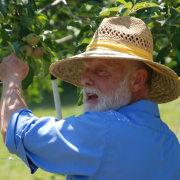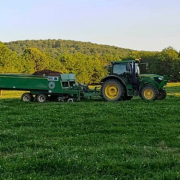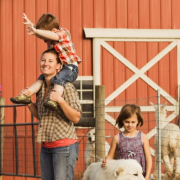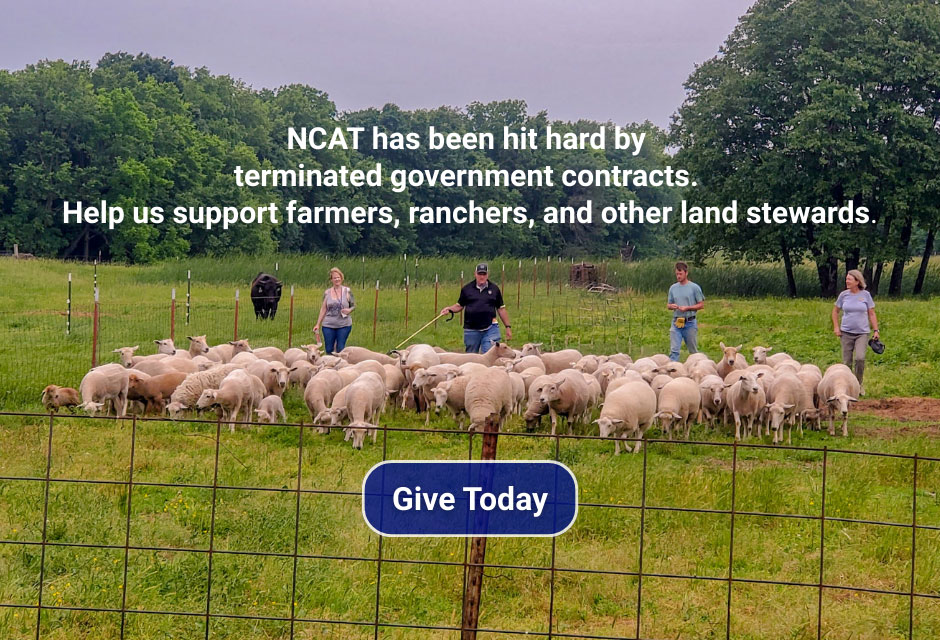New Sustainable Agriculture Specialists Expand the National Center for Appropriate Technology’s Reach
With its four new agriculture specialists onboard, the National Center for Appropriate Technology will have at the ready first-hand sustainable-agriculture expertise in even more parts of the country.
NCAT has boasted national credentials for decades. Its premier sustainable-agriculture information program, ATTRA, for example, has been on the cutting edge and connecting farmers with trusted, practical information since 1987.
The nonprofit organization is headquartered in Butte, Mont., and boasts a network of regional experts at offices in California, Texas, Mississippi, Arkansas, New Hampshire, as well as remote staff in Colorado, Virginia, and Pennsylvania. The new specialists will add Idaho, Kentucky, and northcentral Montana to NCAT’s list of locations.
Just as every farm and ranch has its own story to tell, every region of the country brings its own twists and turns to those tales.
“The knowledge a successful root crop farmer in Montana develops has quite a bit in common with an orchardist in Arkansas,” said Executive Director Steve Thompson. “They learn to read the weather and mitigate the threat of pests and disease. They enrich the soil and market their products. But the details of that knowledge can be very different. That’s where NCAT’s specialists come in. We are excited to expand our reach to assist even more farmers and ranchers at no-cost to them.”
The new NCAT sustainable agriculture specialists include:
Linda Poole, Montana
Areas of Expertise: Grazing, rangeland management and monitoring, genetic selection and husbandry of livestock (sheep, cattle, horses, livestock guardian dogs), biodiversity, process-based restoration; conflict resolution and consensus building
Linda Poole is an agriculture specialist focused on regenerative grazing practices. Childhood adventures on her family’s ranch in eastern Washington led to a deep love of working wildlands where people nurture nature to sustainably produce wholesome food, clean water, haven for animals both wild and domestic, and abiding beauty. Poole has a Master of Science degree in wildlife ecology from Oregon State University. She’s spent over 30 years managing large working ranches to enhance biodiversity and rural resilience. Poole raises crossbred fine wool sheep, using them to restore vitality to a 320-acre prairie homestead in northcentral Montana. Her passion is advancing context-appropriate strategies to produce healthy food, fiber and families, using minimal outside inputs, holistic principles and the power of diverse collaborations.
Mike Lewis, Kentucky
Areas of Expertise:
Crop and livestock rotation, regenerative practices, silvopasture, and cooperatives.
Farming is in Mike Lewis’ DNA. Born in the aptly named town of Farmington, Maine, Lewis follows in his great grandfather’s footsteps as the first family member in two generations to continue the farming legacy. Raised throughout Maine, green farms and rolling acres accented Lewis’s childhood and cemented in him a love for the natural process of agriculture. After serving in the military, Lewis landed in Kentucky and realized that it was farming that was calling to him. In 2009, he took an internship on an organic farm in Gravel Switch, Kentucky and founded Growing Warriors — the first veteran-oriented food security project with a mission to equip, assist, and train military veterans in production agriculture to feed themselves, their families, and their communities. To date, the organization has provided education and training resources to hundreds of veterans and their families. In 2014, Lewis began farming hemp as part of the Kentucky Pilot Program. With the support of Fibershed and Patagonia, he became the first federally permitted hemp farmer in the U.S. since Prohibition.
Justin Morris, Idaho
Areas of Expertise:
Regenerative land management and ecologically based grazing management practices
Justin Morris is a regenerative-livestock specialist. He studied agribusiness and livestock production systems at Brigham Young University where he earned a Bachelor of Science degree in animal science along with a minor in business management. Immediately afterward, Morris studied soils, forage crops, range management and plant physiology at the University of Nebraska-Lincoln where he earned a Master of Science degree in range and forage science. While at the University of Nebraska-Lincoln, Morris spent considerable time investigating how major native grasses in the fragile sandhills ecosystem are affected by different levels of drought and grazing. Throughout his professional career, Morris has provided agricultural expertise on regenerative forms of land management to farmers and ranchers in addition to training fellow employees for nearly 16 years in several positions and locations ranging from Hawaii to New York. These positions included agricultural extension agent for the Montana State University Extension Service as well as soil conservationist, rangeland management specialist, area pasture specialist, and most recently as a regional soil health Specialist for the National Soil Health Division of the Natural Resources Conservation Service. Morris is passionate about improving soil, plant, livestock and human health primarily through ecologically based grazing management practices that also improve farmer’s and rancher’s profitability.
Katherine Favor, California
Areas of Expertise:
Viticulture, agroforestry, silvopasture, fruit orchards, biodynamic farming, soil health, integrated pest management
Katherine Favor is a sustainable agriculture specialist, based in the National Center for Appropriate Technology’s Western Regional Office in Davis, California. Favor holds a Bachelor of Science degree in viticulture with minor in sustainable agriculture from Cal Poly – San Luis Obispo and a Master of Science degree in agroforestry from the University of Missouri – Columbia. She has worked on organic farms in California, Montana, and South America for over 10 years and was the manager of an organic vineyard for several years. Favor spent two years in Paraguay with the Peace Corps, working on food security and agroforestry projects with small farmers, and two years in Argentina, researching vineyard agroforestry systems. She has also worked as an educational program coordinator and conference organizer for several environmental organizations throughout California. Favor is passionate about the intersection of natural resources conservation, food security, and community well-being, and has specialized experience in the utilization of perennials to create regenerative farmscapes.




 USDA
USDA
 Courtesy Alvina Maynard
Courtesy Alvina Maynard
 Pure Pastures, Maggie Eubank
Pure Pastures, Maggie Eubank
